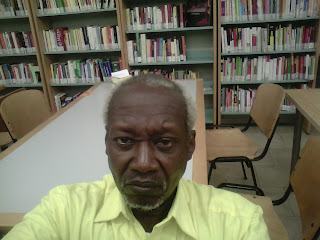Sudanese social life under siege by government-imposed restrictions
August 30, 2013 - (KHARTOUM) - The Sudanese people are trying to break the wall of isolation imposed upon them by the government through the Public Order Law (POL) which prohibits women from wearing tight pants, or sometimes any pants, and bans public and private parties after midnight amid calls by liberals to repeal it.
Sudanese models are seen backstage late June 24, 2010 during the first mixed-gender fashion show in Khartoum (Getty)
The Sudanese, who are suffering from a deep and far reaching economic crisis, fear that the POL could turn into a tool for harassing girls and college students who wear new fashions designed specifically to fit the hot weather in Africa and the Middle East.
“We have become accustomed to rush to our homes early in the evening because Khartoum yawns early due to the government decision to stop private parties at 11:00 pm, an hour before midnight”, says Rasha Abdeen.
Abdeen, who lives in the prestigious Al-Riyadh neighborhood, added that she joined a private dancing club in order to work around "boredom" in the evening, but says that most of those clubs also close before midnight to avoid police harassment.
Last Sunday, police in Khartoum’s southern suburb of Jabal Al-Awliaa reportedly forced a girl named Suhair Ali to write a pledge not to appear in public places without wearing headdress.
She posted a picture in her facebook page of herself without a headscarf to protest the measure and wrote “I was abused by a policeman who dragged me to the police station to write a pledge not to uncover my head”.
In spite of the government’s ban on wearing tight pants, clothing market is full of readymade garments including expensive women pants which attract large numbers buyers.
Liberal activists say that the Islamic government in Sudan is deliberately harassing and abusing girls who hold opposing political views.
A liberal activist named Abd-Alqayoum said that women are facing daily harassment and insults beginning with the fee collector in the public transportation and ending with the college gatekeepers who rebukes her for wearing transparent headscarf and may send her back home thus missing a full school day.
The Sudanese authorities imposed the POL claiming that it will prevent the negative behaviors in the society but the law was denounced by politicians and activists who say that it violates citizen’s fundamental rights.
These government measures enjoy the support of the Islamists particularly the Salafi groups who usually hold religious lectures in the public squares which were frequented by youths and college students.
The controversial MP, Dafa-alla Hassab Al-Rasool, continued to issue statements mocking working women and criticizing groups which call for combating female circumcision.
Last June, he made a controversial statement demanding that Sudanese men practice polygamy in order to produce more children to join the army in the future and criticized the pro-government Islamic cleric, Abde-Galeel Al-Karuri, for joining an anti-female circumcision campaign, saying that he was being deceived by the secular groups.
Journalist and columnist, Faisal Mohamed Saleh, who is a recent winner of the Peter Mackler award for courageous and ethical Journalism has described the POL as “the worst law on earth”.
“The regime is insisting on enforcing the POL in order to harass ordinary people unduly”, said Salih.
In recent years, several Sudanese and foreign investors opened massage and slimming centers in prestigious neighborhoods in downtown Khartoum. However, the police continued to raid those centers claiming that they are used for lewd practices.
Aliaa, who is a client of one of those centers, said that the center was shut down by the police who claimed that it is being used for lewd acts, denying that such practices were taking place in the center.
An activist in cultural centers in downtown Khartoum said that the city was full of bars and beverage shops but they were shut down after the former president Jaafar Numeiri declared Sharia laws in the early 80’s.
A Sudanese citizen, who preferred to stay anonymous in order to avoid social stigma, said that they used to drink alcohol in the bars and return to their homes in the early hours of the morning but nowadays they have to go back before 10:00 pm.
He added that Khartoum has become a "big primitive village", saying that private parties and weddings stop before midnight.
Sudan is currently working on a new constitution following the secession of the mostly Christian and animist south in July 2011.
President Omer Hassan al-Bashir said that since Sudan is overwhelmingly Muslim, the new constitution will be 100% Islamic.
Opposition parties claim that the constitution will be used to crush social and political dissidence.
(ST)






